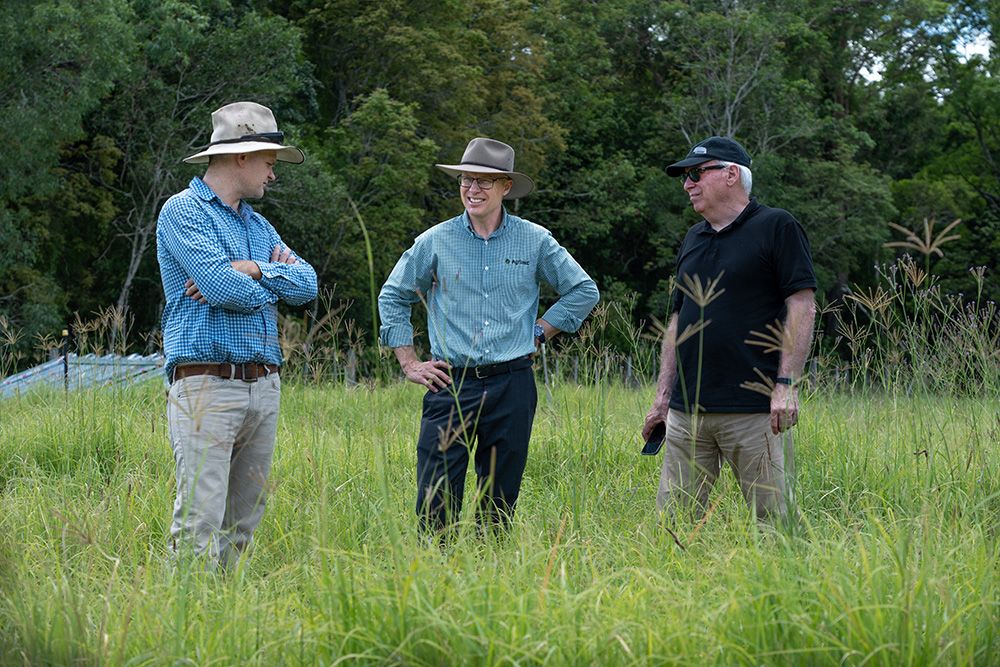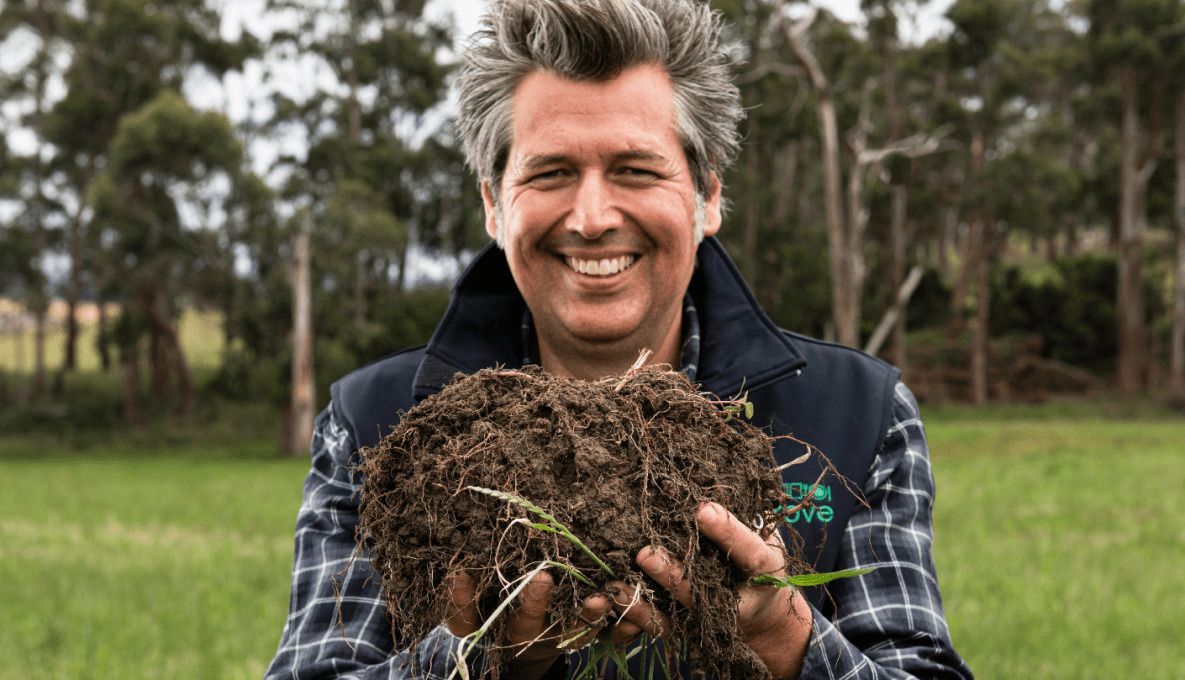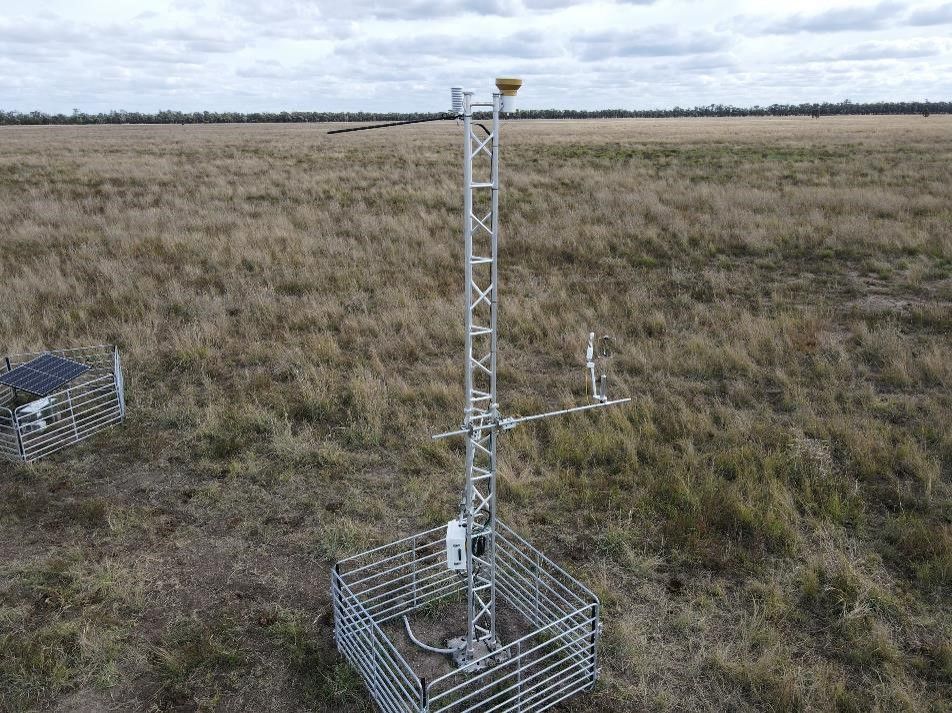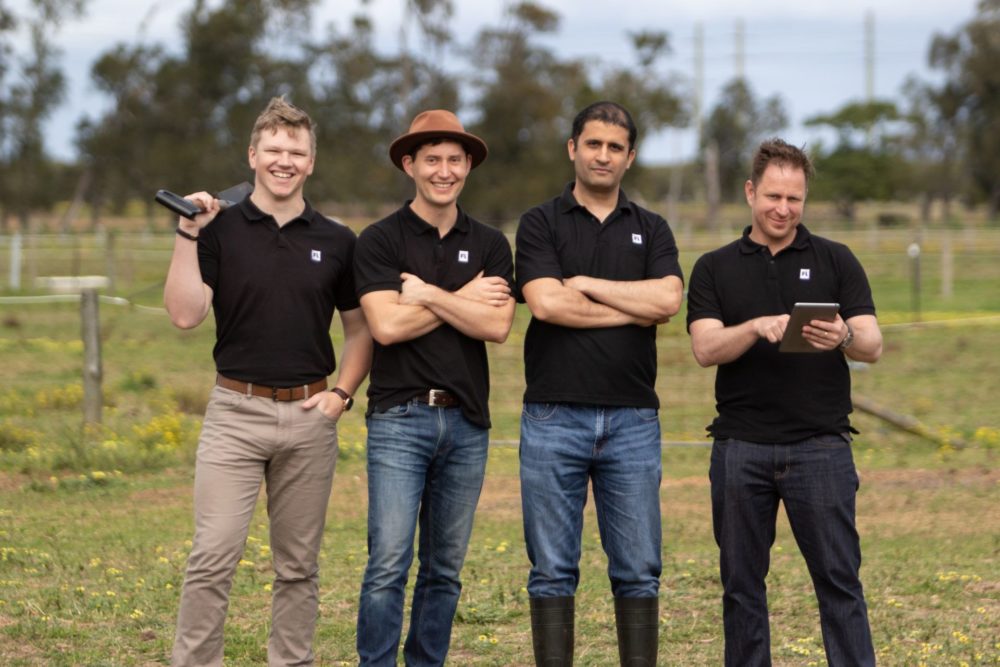Australian startups are working hard to change the way we monitor, manage and report soil carbon sequestration to provide the world with more effective tools in the fight against climate change.
With an ambitious goal to cut carbon emissions by 43% by 2030 and achieve net zero by 2050, Australia is moving aggressively to accelerate carbon capture and storage solutions.
AgriFutures growAG., a free online platform connecting Australian agrifood research, innovation and commercial opportunities with the global market, is championing this goal by spotlighting ground-breaking technologies.
Among the trailblazing startups leading the charge in carbon capture solutions for farmers are soil carbon project developer AgriProve; pasture optimization and carbon startup Agrimix; and environmental measurement software and soil sampling service FarmLab.
Each of these startups have listed opportunities on AgriFutures growAG., including investment rounds and strategic partnerships to tackle the challenges of monitoring, reporting and verification (MRV), referred to as “a cornerstone of carbon markets” by the World Bank.
Better MRV processes and systems “ultimately make it easier for [countries] to shift to decarbonization pathways as well as meet the goals of the Paris Agreement,” notes the World Bank.

Current MRV systems don’t deliver
MRV is the process used to measure and verify emissions reductions from a specific on-farm practice. The process is meant to certify reductions and prove they are real and accurate, to then be issued as registered carbon credits to sell on the carbon market.
The idea looks simple enough on paper; the reality is a cumbersome, complex maze for many. Common complaints about existing MRV processes include a lack of standardized methodology, incomplete or inaccurate data, time and cost. Much of the process is also manual, leaving plenty of room for errors.
Digitizing the process — sometimes called D-MRV — could go a long way to address some of those challenges.

(Agri)Proving the benefits of soil carbon management
In Australia, tech that nurtures the measuring, monitoring and reporting of CO2 has the backing of both government and the private sector.
The Australian Government’s National Soil Carbon Innovation Challenge, boasting $20 million worth of grants, is helping industry leaders to develop and refine various technologies for measuring soil organic carbon stocks, with a collective goal to lower the cost by 90%, to $3 per hectare per year.
Soil carbon project developer AgriProve received one of these grants in 2022 for its farmer-led, cost-effective proprietary model of soil carbon measurement that enables farmers to sequester carbon “at scale.” Its soil tech profiling solution marries one meter soil core sampling with spectroscopy remote sensing and satellite imagery to predict, measure and analyze current and future carbon stocks.
AgriProve is making headway on its mission to de-risk soil as a viable asset class, and index the full spectrum of soil properties, with 550 farmers registered in soil carbon projects with Australia’s Clean Energy Regulator (CER) and 38 validated measured increases.
AgriProve’s ‘partnership model’ helps tackle adoption by simplifying participation, reducing upfront costs and managing risk for farmers, explains founder and managing director, Matthew Warnken.
“A key component for us bringing down the cost of overall soil carbon projects, is reducing the risk or uncertainty of a subsequent sampling round with no increase.”
Reducing risk is achieved through the option of deferred payments repaid through carbon credit generation by splitting the Australian Carbon Credit Units (ACCUs) with the farmer, for activities such as baseline soil sampling, administration or audit costs and subsequent soil sampling rounds.
“We wrangle the complexity, the bureaucracy, and the administration to register soil carbon projects to maximize the number of credits that farmers can deliver and then maximize how farmers can monetize other ecosystem services,” says Warnken.
“We are forging a breakthrough in terms of understanding our soil health and creating a biological pathway to productivity with a funding model alongside it – because healthy soils store more carbon, and generate more credits.”

Towards carbon neutral red meat
Agrimix also focuses on improving low-cost accurate pasture performance and soil carbon measurement to help boost productivity and profitability on-farm, using its pasture management systems and products.
Australia’s leading soil and greenhouse gas research institution, Queensland University of Technology (QUT), is currently working with Agrimix to develop a “measure-model-verify” technology based on eddy covariance flux tower technology and remote sensing integrated with soil carbon models, to continuously quantify the flows of carbon dioxide and photosynthetic parameters over large areas.
“The significance of flux tower research combined with world class soil carbon models is extremely exciting for Australia’s agricultural sector. Soil sampling gives you a data point every few years – flux towers give you a summarized set of data points for the landscape every 30 minutes. The outcome from this approach is game changing for agricultural systems,” said Ben Sawley, CEO of Agrimix.
“We set out to create a high integrity science and nature-based solution that makes commercial sense, is accessible to landholders, and has major productivity and environmental impact. Improving pasture performance improves both farm productivity and carbon drawdown – the ultimate goal is to help farmers boost their productivity as well as producing a carbon neutral product.”
The project is part of Meat & Livestock Australia’s carbon storage partnership that explores ways to ensure red meat production is carbon neutral by 2030.

Soil sampling should be “like blood testing”
Another standout Australian startup, FarmLab, believes effective soil testing should be a lot like blood testing in terms of the infrastructure needed to ensure accuracy.
“There’s a lot of infrastructure that goes behind blood sampling and getting it to the pathology lab and accurately mapped back to the patient,” says FarmLab Founder, Sam Duncan. “It’s essentially the same process for soil testing but on a larger scale because we’re doing hundreds of samples on a single ranch or farm.”
FarmLab’s software platform records where each sample is taken from and lets agronomists interact with sampling labs online. It also enables farmers to manage their soil health (e.g., water holding capacity, carbon, nutrient levels) through a single interface that stores test results and other data. The company has experienced 20% month-on-month growth, with revenue doubling in the past three months.
As demand grows for carbon capture and storage solutions, so does the sophistication of Australia’s soil carbon measurement and modelling, widely regarded as a world-leading methodology.
Agricultural soils are now considered one of the lowest cost and highest volume drawdown opportunities. To continue driving momentum in this field, AgFunder encourages interested parties to explore the following opportunities on AgriFutures growAG.:
- AgriProve: Series B $30m funding round
- Agrimix: Seeking strategic partners for commercialisation
- FarmLab: $5 million capital raise to drive expansion into the US market
Explore, find and connect with the latest investment opportunities, research projects and relevant expertise via growAG.com.
Disclaimer: The investment opportunities listed by AgriFutures growAG. are for professional and sophisticated investors only. The purpose of all information at growAG. is general only and does not constitute advice. The information relating to opportunities has been written by the organisation and does not represent the opinion of AgriFutures Australia. AgriFutures Australia has not independently verified the information contained above and we take no responsibility for your reliance on the information. You should make your own inquiries and undertake your own due diligence before making any financial decision or investment.




